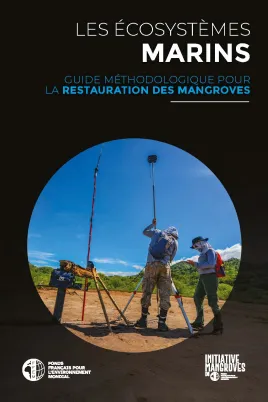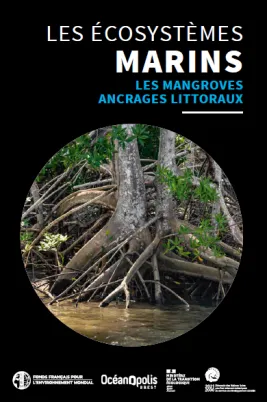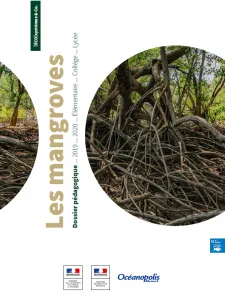Share the page
Mangroves Initiative - Costa Rica, Benin
Project
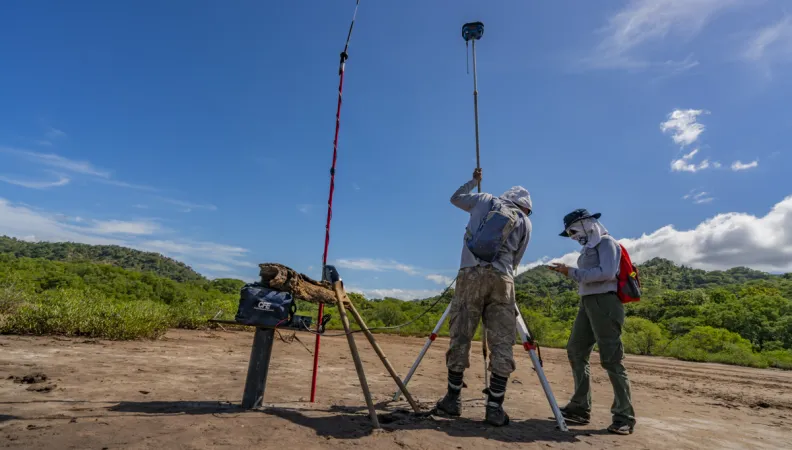

-
Project start date
-
Status
In progress
-
Estimated date of project termination
-
-
Project financing date
-
-
Financing duration
-
4 years
-
Type of program
-
FFEM
-
Global financing amount
-
6 646 854 €
-
FFEM financing amount
-
1 270 000 €
-
Country and region
-
Benin
-
Type of financing
-
Partners
-
SINAC, UNDP, GIZ, FAO, EPOMEX Institute
-
Beneficiaries
-
Costa Rica's National System of Conservation Areas (SINAC)

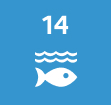
Restoration, conservation and sustainable management of mangroves in Costa Rica and Benin in the face of climate change
The project aims to enhance climate change mitigation and adaptation in coastal wetlands in Costa Rica and Benin by restoring mangroves and promoting their sustainable management. It relies on the transfer of technologies and skills developed in Mexico to Costa Rica and Benin, with the aim of restoring pilot mangrove sites for subsequent large-scale replication. The cooperation process seeks to strengthen the implementation of Costa Rican "Social Blue Carbon" public policies.
Context
Mangroves are essential ecosystems for the survival of certain species, providing a habitat for many threatened plant and animal species. These environments are crucial to food security and the fight against climate change.
Costa Rica and Benin are both tropical countries with large expanses of coastal wetlands, including mangroves. In the context of climate change and ever-increasing anthropogenic pressure, the sustainability of the services provided by these coastal ecosystems is not a foregone conclusion, and coastal wetlands, and mangroves in particular, remain fragile ecosystems. A 35% loss of mangroves was observed in Costa Rica between 1980 and 2005 (FAO, 2005), and a quarter of their area disappeared in Benin between 1980 and 2006.
Objective
The project aims to increase climate change mitigation and adaptation in the coastal wetlands of Costa Rica and Benin by restoring mangrove areas, promoting their sustainable management and exchanges within a framework of south-south cooperation.
Impacts
- Fully contributes to the preservation of the global environment by restoring mangrove areas in Costa Rica and Benin, but above all by adopting a large-scale replicability approach based on South-South cooperation exchanges (Mexico, Costa Rica, and Benin).
- By linking mangrove restoration with carbon and methane emissions/storage, the project specifically contributes to the Carbon Neutrality goal that Costa Rica aims to achieve by 2021.
- Accounting for “blue carbon” enables its commercialization in Costa Rica and expands the existing framework of the PES (National Payment for Environmental Services Program). This policy is the first of its kind at the international level.
Project description
The project is organized around five components:
- Implementation of a pilot restoration of 58 hectares spread across 3 mangrove sites on the Pacific coast of Costa Rica, each with its own specific features. It relies on the expertise of the University of Mexico, which conducts hydro-ecological diagnostics of the sites and defines the most suitable natural and/or community reforestation methods. Scientific monitoring of the restoration process at each site is tailored to study the replicability and relevance of the actions undertaken.
- Promotion in Costa Rica of mangrove ecosystems through environmental education and the development of sustainable economic activities related to these ecosystems.
- Development in Costa Rica of a “National Social Blue Carbon Strategy” and planning instruments that strengthen the institutional capacities of public authorities in the sustainable management of coastal wetlands and mangroves, as well as measuring and assessing their benefits.
- South-South skills transfer. Implementation of the project in the Mono Delta area in Benin with the pilot restoration of 30 hectares of a mangrove site, applying the same methods and expertise as those developed for the Costa Rican sites. The objective is to deepen the transfer of skills and the sharing of experiences between Mexico, Costa Rica, and Benin. The project also supports several actions for the sustainable management of sites by encouraging the development of alternative salt production methods, in order to reduce mangrove cutting traditionally used as firewood.
- Capitalization and South-South scientific exchanges: involving the academic sector in the different stages of the project and promoting the exchange of experiences at the Mesoamerican and international levels.
Exemplary and innovative
The project enhances mitigation and promotes adaptation in Costa Rica and Benin to climate change by recognizing mangrove ecosystems as an adaptation tool. In particular, in a context where the challenges of mitigating the effects of climate change are increasingly critical, the project, by linking mangrove restoration with carbon and methane emissions/storage, specifically contributes to Costa Rica’s achievement of its Carbon Neutrality goal by 2021.
Furthermore, the accounting of “blue carbon,” alongside the development of a Social Blue Carbon Strategy, enables Costa Rica to commercialize “blue carbon” by expanding the framework of the existing PES system. An innovative PES policy could be established in Costa Rica, the first of its kind at the international level. The experimental monitoring systems proposed by the EPOMEX Institute, and the collaborations developed with other scientific initiatives for measuring the carbon balance of ecosystems in Costa Rica (a reference in this field in coffee cultivation or forest management), contribute to this particularly innovative dynamic.
Ressources (ES)
Sustainable Development Goals
ODD13 Climate action

ODD14 Life below water

The Mangroves Initiative projects
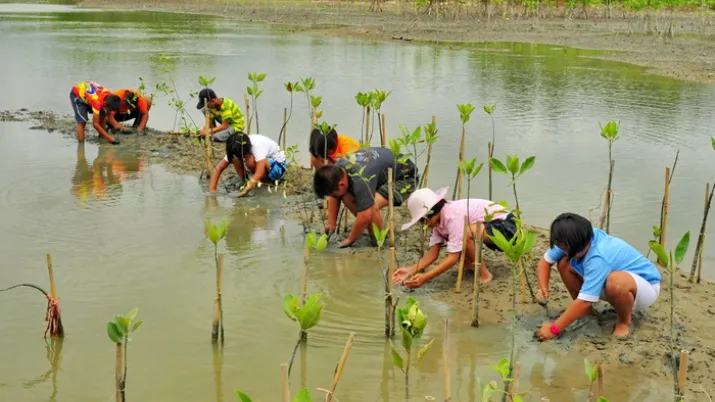
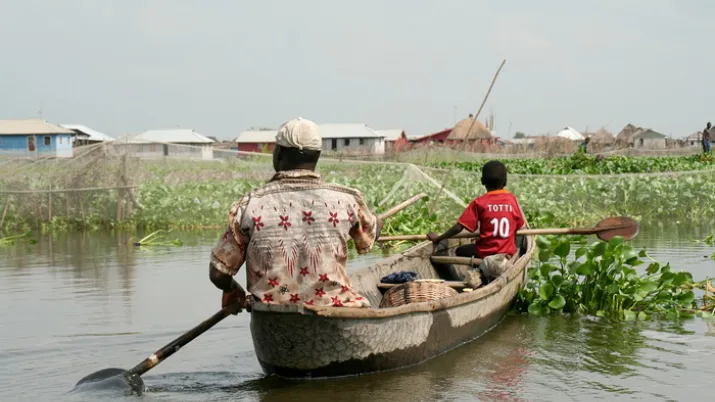
News of the Mangroves Initiative
Mexico (Campeche): 21st International Congress on Environmental Sciences and Mangrove Restoration
Published on september 4 2024
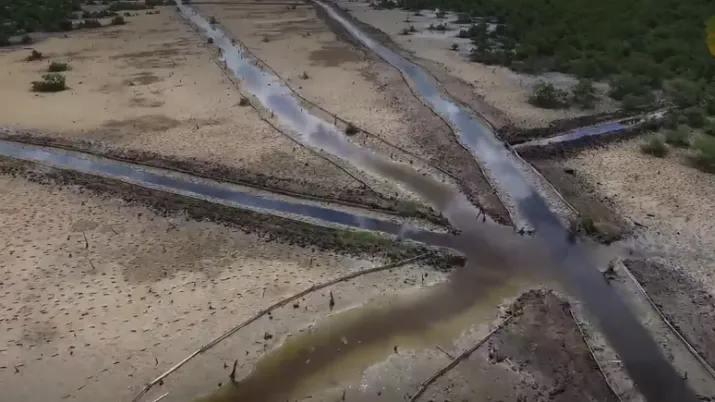
Methodological Guide for Mangrove Restoration – FFEM – 2024
Published on april 23 2024
Events on mangroves
Published on february 25 2023
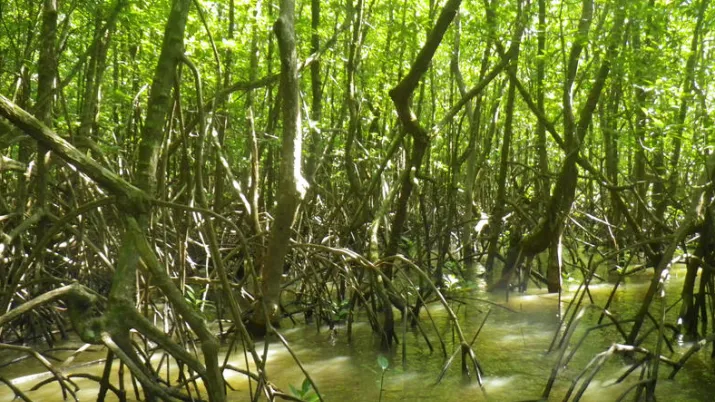
Mangroves Initiative publications
